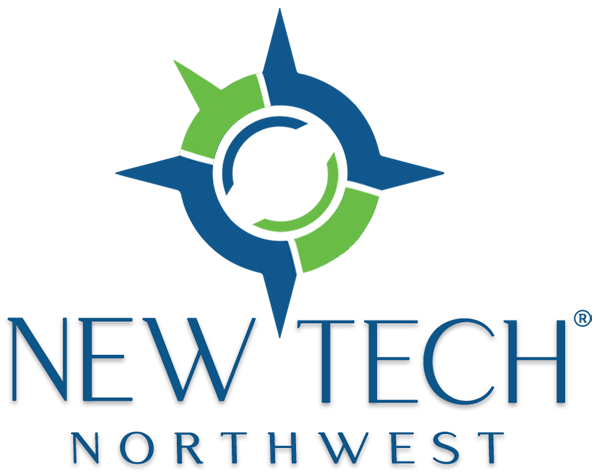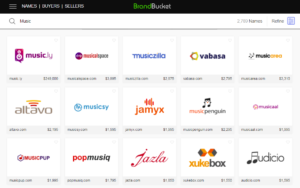What’s the first thing you do before you tackle something for the first time?
You do some research and look for clues, right?
Whether that’s Google storming, watching “how to” Youtube videos or scrolling through your LinkedIn network to connect with a couple subject matters experts over coffee. The first step should focus on taking measures to reduce your uncertainty, validate your direction and build a plan of attack before commencing on an unfamiliar journey.
Unfortunately what we’ve learned with naming is that many entrepreneurs, bloggers and small business owners fail to take a strategic approach to naming and attempt to tackle the project in an afternoon meeting. I personally fell into this trap three years ago when I launched my blog and admittedly, I was just overly excited to start writing and cross things off my list. Instead, I should have spent more time upfront thinking about my target audience, my brand positioning and getting a better understanding of the different types of names.
Naming is hard, you will get frustrated and hit a wall at some point, just know you are not alone; it’s just part of the entrepreneurial journey. And, as cliche as it may sound, I wish someone reminded me of the “it’s a marathon not a sprint” analogy to sideline my impatience. The most important thing is to have a plan – with timelines, must haves, nice to haves, and a game plan for shortlisting, or you won’t feel like you are making progress and you’ll just want to give up.
Before I share a couple of resources to help you on your naming endeavor, I highly recommend watching this Ted Talk by Adam Grant. In a nutshell, the talk reveals how a moderate level of procrastination actually induces creativity by letting your ideas incubate in your mind. If you haven’t seen the talk before, it will change how you approach complex projects (naming included!).
Getting started or stuck? Here are five naming resources.
OneLook
I really like Onelook’s Reverse Dictionary. It’s simple but here’s how it works.
Let’s say you were planning on launching a startup in the travel space and were on the hunt for a list of industry related words and phrases. You could type in “travel” and OneLook will populate pages and pages of related words. Additionally, you can click on each word and see rhyming words.
If you are stuck and are tackling the naming project either by yourself or with a small team, this is fantastic tool to help you build a project vocabulary.
Crowdsourcing Services
There are several great crowdsourcing services that focus on naming, including SquadHelp, Ink & Key and CrowdSpring. Crowdsourcing is a great option for those just starting their naming journey and also for those who are stuck and are just having a really hard time thinking outside the box.
I recently spent over $1000 to compare the creative engines and experiences behind four platforms to crowdsource a company name.
Hire a Naming Consultant
We’ve partnered with and referred a few different naming consultants over the last few years. We reached out to one of our naming partners, Mark Gunnion to get a better understanding of how he thinks about naming.
Here’s what Mark Gunnion had to share:
My secret weapon on a naming project is something I call Question Eleven.
At the start of a job, I send my clients a “Homework Assignment”, where I ask ten technical, dry questions about business category, domain requirements, aesthetic preferences, and so on. But the question I always zoom in on, and one that I have found to be very useful in shaking out new ideas, is Question #11. It goes like this:
Is there a “special sauce” about the founder of the company or the origin story of the product that might add some unexpected directions to the name creation? By this question, I’m trying to get at things beyond the usual branding issues for the category, looking for things about the people at the heart of the enterprise, interesting tales about the early days, or unusual ways you do your work. Did the founder get the idea for the company while playing Poker? Are the owners all pilots? Did the founders meet while deep-sea fishing? Any offbeat facets of the founder’s personality or the origin story of the company (or product) might illuminate a naming path leading to very interesting language.
Basically, I ask the client what their “kink” is. What’s that crazy, weird thing that you’re into that people don’t know about, that may have nothing at all to do with the assignment? For example, say the founder of a software company is an avid mountain climber in her spare time. I’ll take that piece of information, and then I’ll look at all my books and online resources for three things: Mountain Climbing Jargon, Mountain Climbing Glossary, and Mountain Climbing Slang.
Explore a Brandable Marketplace
There are several brandable marketplaces out there, including Brandbucket, Brandroot and Namerific. Here you can type in an industry focus and see a list of available names for sale and each name comes with a logo. The names are submitted by independent sellers, but BrandBucket has a strict acceptance policy which in the end maintains the quality of names on the site.
Hire a Domain Broker
This last one is often overlooked.
Since the majority of short, one syllable .coms are already registered, you’ll quickly come accustomed to searching a registrar like Godaddy or NameCheap only to find that the .com is already registered, but this doesn’t mean it’s actively being used for a business.
Don’t give up on the name just because the .com is taken, if you love the name and think it has all the characteristics of a strong name, reach out to an experienced domain broker.
But who can you trust?
Adam Strong, Bill Sweetman and Ryan Colby have decades of experience in the industry and are trusted partners of ours. You can get in touch with them here.
We hope these resources and tips help you land that perfect name. Happy Naming!













